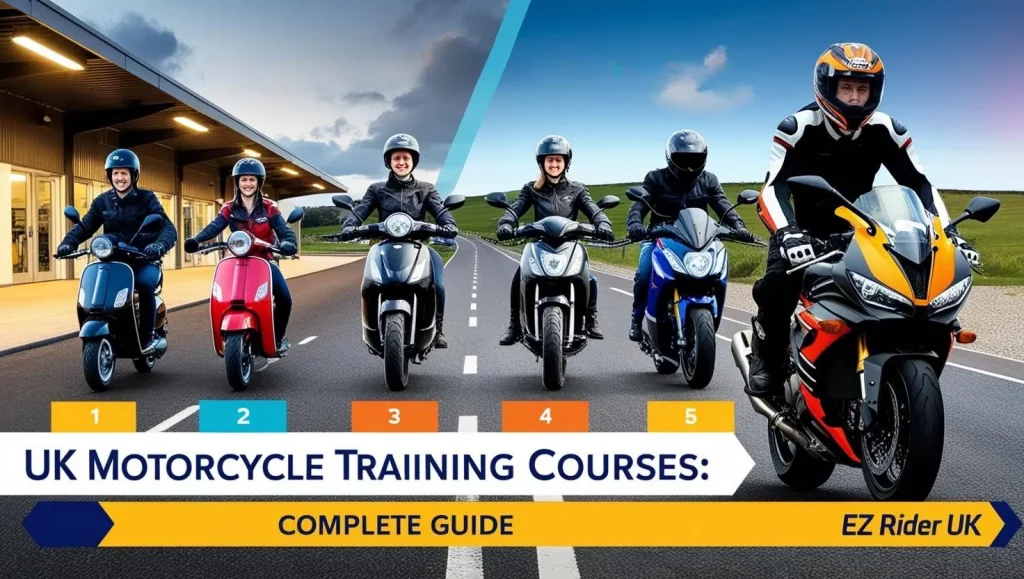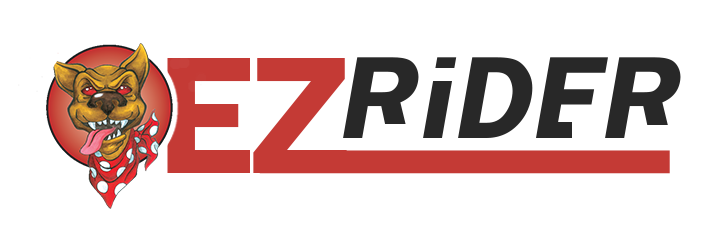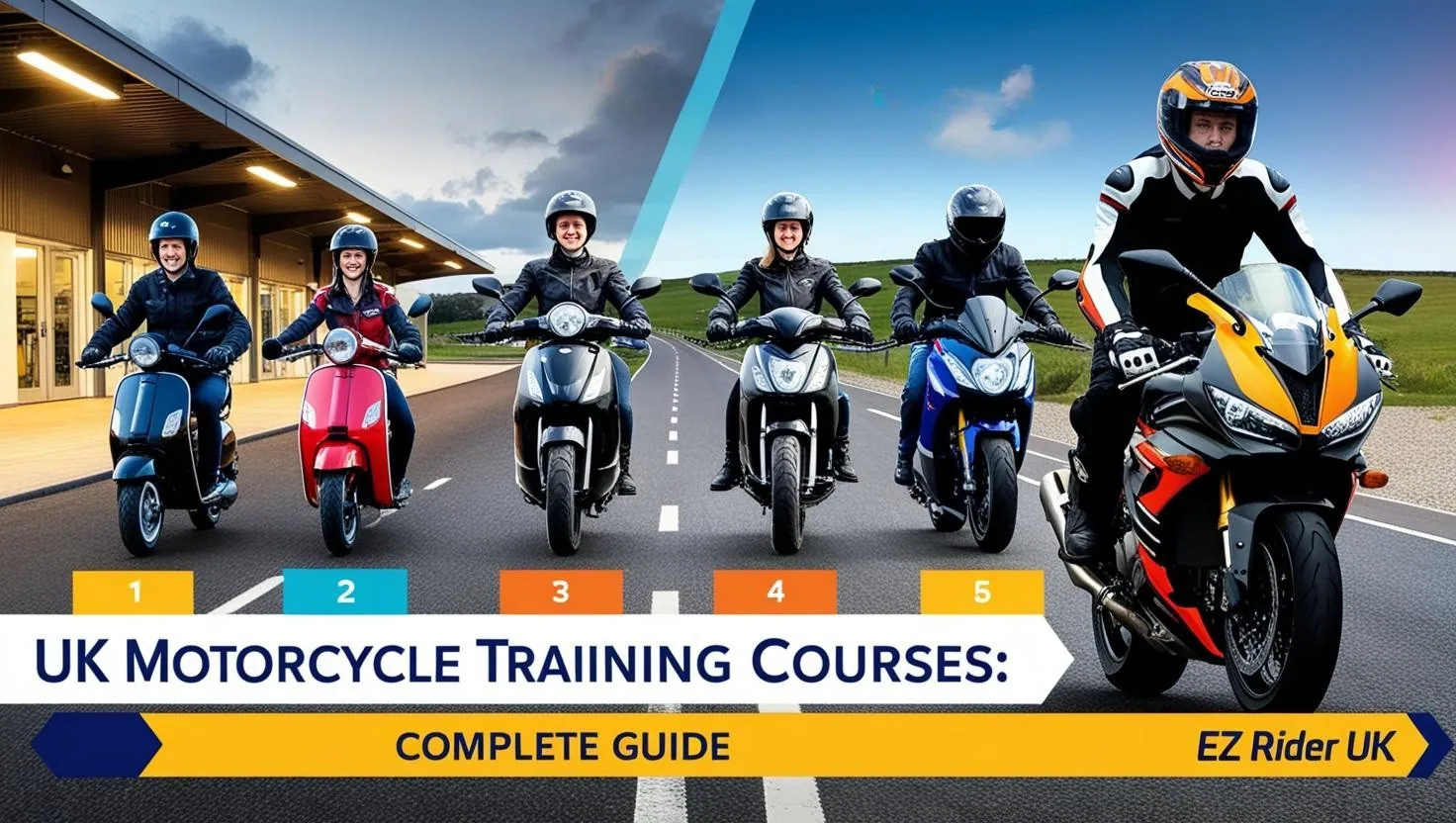Living in the UK as a motorcycle rider depends on getting both safe and legal certifications through proper training programs. All riders need to understand the complete selection of UK motorcycle training courses if they want to become qualified drivers or advance license quality.
Why Motorcycle Training Matters?
The UK law requires motorcycle training because it lays the crucial foundation for riders to become competent and secure operators. British motorcycle education standards create programs that build rider abilities for secure motorbike operation during different climate conditions and road environments. The knowledge learned through professional trainer sessions minimizes accident risks so riders become better trained operators who maintain safety during their time on British roads.
Understanding UK Motorcycle Training Requirements

Eligibility Criteria
Before beginning the ride you must fulfill certain conditions to become eligible for motorcycling. The starting age for motorcycle training differs according to the type of license that applicants wish to obtain. The medical declaration along with reaching age 16 enables application for a provisional license. To start applications you should show proof of who you are and where you live. Proper vision ability remains essential since you need to recognize number plates from a measuring distance of 20 meters.
The age requirements vary by license category. AM licenses for mopeds are available from age 16. A1 licenses for light motorcycles can be obtained at 17 years. A2 licenses for medium motorcycles require riders to be 19 years old. The full unrestricted A license is available at 24 years, or 21 via progressive access.
Compulsory Basic Training (CBT)
Before riders in the UK can begin their driving journey they must undergo Compulsory Basic Training through CBT. The comprehensive motorcycle training consists of a full day from 8 to 9 hours that combines practice with theoretical information about riding motorcycles. The initial part of the course starts with an orientation session where trainees receive their first eyesight evaluation.
Students receive basic motorcycle control education in controlled safe areas before executing on-road training that includes observation periods. The day concludes with a final assessment and certificate issuance.
CTB training costs between £130 and £170 based on your geographical location and the selected training provider. After obtaining the CBT certificate you must use it to either earn a full driving license within two years or re-take the CBT to maintain riding privileges.
How Long Is a Motorcycle Training Course?
Following CBT, aspiring riders must pass the motorcycle theory test before proceeding to practical training. The test includes two essential parts as its main elements. The multiple-choice segment consists of fifty questions about road safety combined with traffic signs and riding theory and demands at least 43 points to pass within the 57-minute time frame. Pupils need to pass the 14 video-based hazard perception exercise to get a passing grade starting from 44 points to its maximum of 75 points.
People can arrange theory tests for £23 through the DVSA website booking platform. The Highway Code combines both the official DVSA guide and authorized mobile apps and online resources used for preparation.
How Much is Motorcycle Training Course Costs?
Course Type | Duration | Cost Range | Validity |
| CBT | 8-9 hours | £130-£170 | 2 years |
| Theory Test | 1.5 hours | £23 | 2 years |
| DAS Course | 4-7 days | £600-£1,000 | Lifetime |
| Advanced (IAM) | Variable | £149 | Lifetime |
| RoSPA | Variable | From £68 | 3 years |
Advanced Motorcycle Training Course Options
Direct Access Scheme (DAS)
Riders who have reached the age of 24 years can participate in the Direct Access Scheme to learn large motorbike operations leading to unrestricted license acquisition. Complete motorcycle control training combined with advanced observation, defensive driving practice, and emergency maneuvers form the core content of this intensive educational program. Students accomplish complete preparation before taking their off-road Module 1 assessment as well as their on-road Module 2 evaluation.
DAS training programs require 4-7 days and learners need to pay between £600 to £1,000 for this training. The investment through this program leads to the fastest possible path to an unrestricted license because it comes with bike rental services and protective equipment.
Advanced Riding Courses
Several organizations operate additional schooling programs that help licensed riders improve their abilities. Motorists who want advanced riding skills should consider the Institute of Advanced Motorists (IAM) because they provide extensive training alongside experienced qualified mentors. Their programs focus on defensive riding techniques and advanced road positioning and planning, with courses costing approximately £149.
RoSPA Advanced Drivers and Riders offers three levels of certification (Bronze, Silver, and Gold), with regular reassessment opportunities and enhanced insurance benefits. They also provide professional development pathways, with membership starting from £68.
Safety Equipment and Legal Requirements
Safety equipment acts as a legal requirement while simultaneously protecting the rider from potential harm in all situations. Motorcycle riders need to wear helmets approved by DOT or ECE standards and use protective clothing which includes CE-approved armor in jackets combined with motorcycle-specific gloves along with protective trousers and suitable motorcycle boots.
Practical Tips for Success
Success in motorcycle training requires consistent study for the theory test using official DVSA materials. Regular practice of basic control skills between training sessions is essential, as is maintaining good physical fitness and staying well-rested before training. Choosing a reputable training school with high pass rates can significantly impact your success. Consider taking additional practice sessions if needed, and always invest in quality safety gear from the start.
Future Developments in UK Motorcycle Training
Motorcycle training will improve through the upcoming use of VR technology in hazard perception testing. Riders are becoming more interested in sustainable riding methods as smart devices enter motorcycle teaching systems. New electric motorcycle operating standards are being established to produce safer riders who adapt their skills to transportation changes.
Frequently Asked Questions
What is the minimum age to start Compulsory Basic Training (CBT)?
You must be 16 years old or above to start your Compulsory Basic Training program. For 16-year-olds, UK motorcycle training allows a moped ride with a 50cc motorcycle engine and a 28mph top speed only. You need to be 17 years old to steer 125cc motorcycles.
When do I have to obtain my provisional license before starting motorcycle instruction sessions?
To begin motorcycle lessons and CBT training, you must have a recognized provisional driving license ready. You can start the application procedure on the DVLA website or through a D1 form from local Post Offices. Only AM motorbike licenses will receive a motorbike license endorsement.
How long does my CBT certificate remain valid?
The CBT certificate remains active for two years starting from its completion date. You are allowed to operate a 125cc motorcycle with L plates throughout this two-year duration. When the two years pass, you must take the CBT again to stay within legal riding rules.
What should I expect to pay for my Direct Access training?
Direct Access course prices typically range between £600 and £1,000. This variation depends on factors such as location, training provider, and whether equipment hire is included.
Which advanced motorcycle training programs exist in the United Kingdom?
Within the UK, people can find various levels of advanced training sessions. Advanced riding programs are available from both RoSPA alongside the Institute of Advanced Motorists (IAM).
What is the standard training duration that riders need to complete to pass the entire motorcycle test?
Most riders need between 20-30 hours of motorcycle instructor training course. Although the amount of training needed commonly differs between people. Professional training for passing the motorcycle test usually begins with 3-5 days of solid instruction.
What happens if I do not pass my motorcycle driving test?
Retaking the failed Module 1 or Module 2 practical test requires waiting at least three working days after the first attempt before your next opportunity. Training school professionals will provide supplemental teaching sessions to strengthen your specific skills.
Do I qualify for motorcycle training while using eyeglasses and contact lenses?
Motorcycle training requires no restrictions for people who need to wear either glasses or contact lenses. You need to show proper vision through your eyewear which enables distant number plate reading at 20 meters.
Is motorcycle training available year-round?
Most training schools operate throughout the year, though some may reduce their services during extreme weather conditions. Training during winter months can actually be beneficial as it provides experience in challenging weather conditions, though many prefer to start in warmer months.
Which insurance policy should I have to cover my training period?
The professional training school’s insurance policy extends coverage to you whenever you operate their motorcycles for learning purposes. Third-party insurance coverage at minimum is needed when you practice riding on your motorcycle.
Conclusion
To acquire a motorcycle license in the UK one needs to complete dedicated training and pass through safety regulations. The structured motorcycle training framework guarantees that riders will acquire essential abilities through two main qualification pathways beginning with CBT. Proper training investments along with understanding requirements help you fulfill legal necessities while gaining valuable saving skills that will support your motorcycle riding journey from beginning to end.
The safety of riders together with their riding pleasure depends on receiving motorcycle training. Begin by selecting proper courses and training providers followed by getting extra training to improve your abilities.

